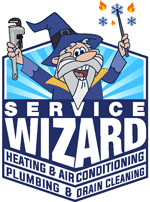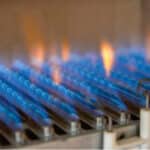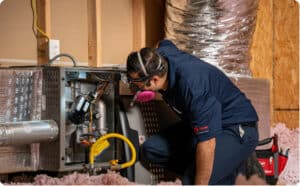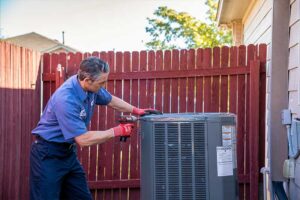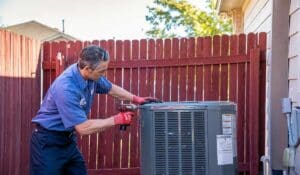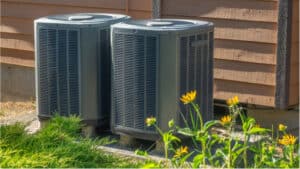Winter is on its way. Are you ready for the heating season? Is your heating system prepared to keep your home comfortable and warm through those chilly nights, or do you need a furnace replacement?
Nothing is worse than having a major heater failure on those cold winter nights. Worse yet, you may have to wait to get an appointment to get it fixed.
Getting a new heating system isn’t something you can do quickly, however. There are a lot of different heater types that are designed for different home sizes, climates, and preferences, so it can be difficult to determine what’s right for you. Fortunately, Service Wizard is here to help you decide which is right for you.
Types of Heaters
Whether you’re getting a new heater or replacing your current one, you have a lot of decisions to make. Here’s a breakdown of the different heater options, how they heat your home, and their pros and cons.
Central Furnace Heating Systems
Central furnace heating systems are one of the most popular and common types of whole home heating across the country. They use forced air from a central unit to heat your home, so they can be used in large home with multiple rooms. The heat is delivered via ducts that travel from the central unit to the rooms, then the cold air is sent back to the unit with return ducts.
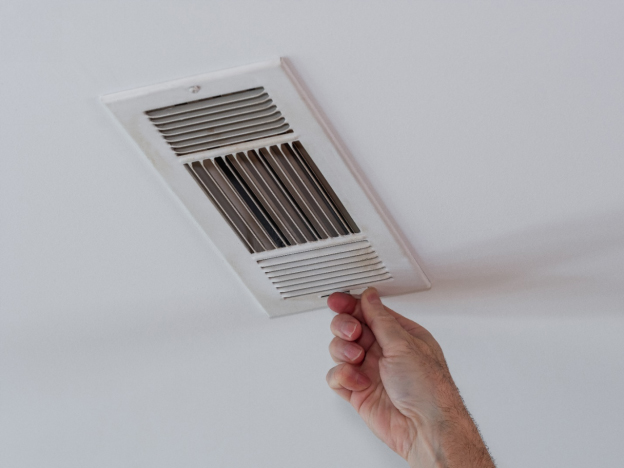
There are several types of fuel sources that can be used for central furnace heating, including gas, liquid propane, and electricity. Gas is the most efficient, which is measured with the annual fuel utilization efficiency (AFUE), which can be up to 98% energy efficient.
The fuel source is combusted to create heat in a heat exchange. With a sealed combustion model the air is pulled in, so they’re more efficient than heaters that use your home’s air for combustion.
These furnaces come with upfront expenses, however. The tradeoff is that you get more energy efficient heating for lower energy bills, which can save you money over the life of your unit. Depending on the complexity of your home and existing ductwork and components, these systems can have a longer installation process than other systems.
|
Pros ● More energy efficient ● Suitable for whole home heating ● Cost effective heating |
Cons ● Upfront expenses ● Complex installation ● May require additional components |
Heat Pump Systems
Heat pump systems are versatile options that work for both heating and air conditioning. They rely on a heat pump to transfer heat rather than creating it. With a heating and air conditioning unit, the system switches between heating and cooling.
Depending on the type of heat pump, these use electricity to transfer heat from different sources. There are air source heat pumps and geothermal heat pumps – also known as ground source heat pumps. When they operate as a heater, heat pumps are more efficient than other heat sources that use fuel. When they’re used for air conditioning, the efficiency is about the same as a regular air conditioner.
Here are details on the different types of heat pumps:
Air Source Heat Pumps
Air source heat pumps are used in homes when affordability is a concern. Thermal energy can be transferred from one air source to the other, with the heat pump unit outside. It connects to an indoor air handler to transfer heat and distribute the heated or cooled air through the ducts into your home.
Ductless Heat Pumps
Ductless mini splits or heat pumps are a little different than air source heat pumps. They can be used for both heating and cooling, but they rely on an outdoor compressor unit and multiple air handlers. This is important for zoned heating that can be adjusted separately to suit different preferences.
For example, ductless heat pumps are usually used in homes that have new additions without ductwork or homes that have no ductwork at all. They can be configured easily with one or multiple indoor air handlers as a whole home heating option, but they can also be used to supplement the main heat source in your home.
Ground Source Heat Pumps
Geothermal heating systems, also known as ground source heating, transfers heat energy between the indoor air and the ground. The heat is absorbed through a ground loop component and carried to a geothermal heat pump inside your home. They can be paired with air handlers or configured for forced air.
This is an energy efficient option that can also be used for solar heating or hot water systems, but keep in mind that more functionality often comes with higher installation expenses.
| Pros | Cons |
|
● Energy efficient ● Versatile ● Cost effective |
● High upfront costs and installation costs ● Complex planning and installation |
Boiler Heating Systems
Boilers are often used in older homes or cold climates, though some homeowners prefer them for new construction as well. They use hydronic systems instead of forced air, which means they create heat by burning fuel for a heat exchanger to produce hot water or steam.
Boilers are types of home heating systems that are used in older homes, but it’s possible to use a boiler in a new home as well. They’re often hydronic systems instead of forced air, so they create heat by burning fuel for a heat exchanger to produce steam or hot water.
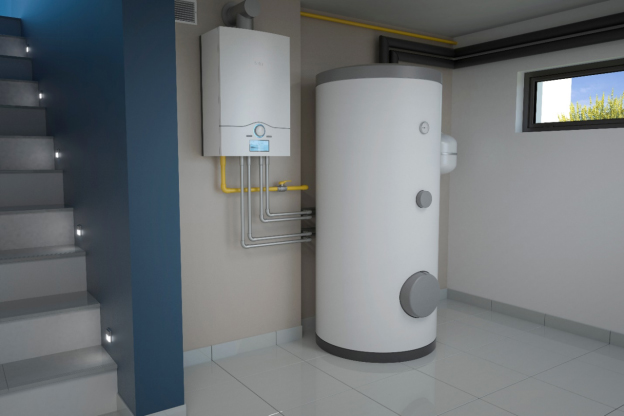
The heat can be circulated through the home using radiators or baseboard heaters. This works a little differently than other systems in that they heat the people in your home and the things in the environment instead of the air. This gives you better air quality than heat pumps or furnaces.
Boilers can run on fuel oil, liquid propane, or natural gas. Typically, boilers are efficient and have an AFUE of 90% or higher. It can be costly to install a boiler, though, since it involves radiators and piping if they’re not already in your home.
| Pros | Cons |
|
● Energy efficient ● Versatile fuel options ● Good indoor air quality ● Hydronic heating
|
● Heats people and objects, not air ● Pricey ● May need component installation |
Radiant Heating
Radiant heating is also available without a boiler. Radiant floor heating systems are a luxurious option that’s installed below the home’s flooring to warm the surface and create ambient heat. They rely on hydronic heating systems and a boiler or water heater that warms the water before circulating it into pipes.

If you have hardwood or tile floors, radiant heating is great for comfort and luxury in your home. These systems are usually used for whole home heating, though you can supplement with space heaters in some rooms.
| Pros | Cons |
|
● Comfort and luxury ● Ideal for tile or hardwood flooring ● Hydronic heating ● Works for whole home |
● Pricey ● Limited to larger spaces ● May struggle to heat certain areas of your home |
Convection Heating
Electric-powered convection heaters are heaters that draw cold air into the heating element before transferring it into the rooms in your home. They can heat large, shared spaces like dining rooms and living rooms. Though they can be loud, there are quiet models that are space saving and work well for small spaces.
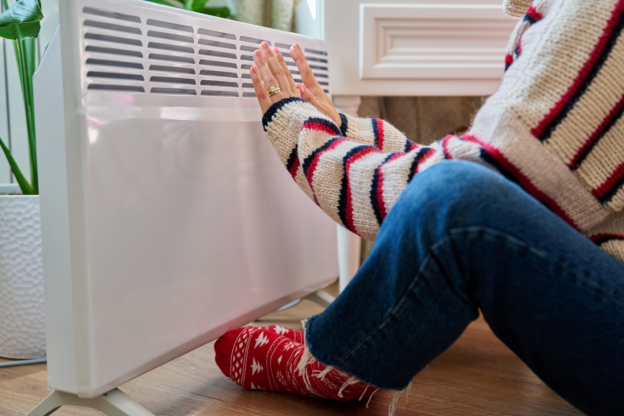
You can get convection heaters in a range of styles, sizes, and price points. Some are expensive and exceed $500, however. These are not an energy efficient heating option, however, and can overheat.
| Pros | Cons |
|
● Portable ● Space saving ● Good for shared living spaces ● Works for supplemental heat |
● Not energy efficient ● May overheat and cause a fire ● Not good for whole home heating
|
Fan Heaters
Fan heaters operate by fanning air over a heating element and into your home. They’re good space heaters and can be moved into rooms that you need warmed easily. You can’t heat a whole home with a fan heater, but they can be helpful for spaces that don’t get a lot of central heat or for particularly cold days.
Plenty of cheap fan heaters are available, but larger and more efficient models can be over $250. If you have a big space to heat, a more expensive model may do the trick.
| Pros | Cons |
|
● Heats space quickly ● Energy efficient ● Cool housing |
● Only heats while operating ● Not good for whole home heating ● Requires good insulation ● Can be a risk to kids and pets |
Things to Consider When Buying a Heater
When you’re shopping for a new heater, it’s important to consider all the factors in your decision. You don’t want to make an impulse choice and end up with a heating system that doesn’t work for your home or needs.
Think about things like your home’s square footage, your budget, and how much longevity you’re trying to get out of your heater. Is it more important to get efficient and cost-effective options, or are you looking for a short-term solution?
Which Type of Heater Do I Need?
Now that you know what’s available and how these heaters work, you still have to decide on different models, features, and price points. If you feel overwhelmed, feel free to contact the experts at Service Wizard. We’ll be happy to help you navigate your choices andfind the right heater for your needs.
Professional Heating Installation with Service Wizard
Afurnace replacement is not a decision to take lightly. If you want help to get the most out of your investment and ensure a cozy home all winter, contact the pros at Service Wizard to see what we can do for you.
